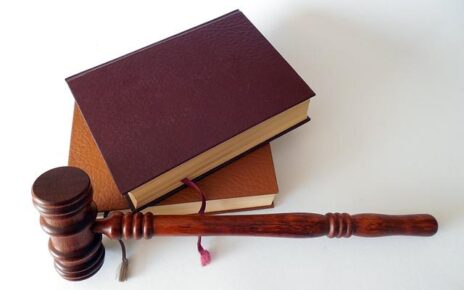As we are surrounded by Financial systems, the cheques are also in used as the traditional payment systems. However, what consequences does a buyer face when issuing a cheque which is marked ‘not honoured’. Bounced cheque, can create serious legal repercussions for both; the drawer and the drawee. Knowledge of these implications is useful to any person that transacts under the checks. This blog will then look at the legal repercussions that accompany the issue of a bounced cheque and the benefits of submitting to legal knowledge.
What is a Bounced Cheque?
A bounced cheque also known as dishonoured or returned cheque is when a bank reject payment of the cheque for any reason including inability to honour payment due to lack of enough cash, a closed account or any other valid reason. In this case, the cheque is returned to the payee who was supposed to receive cash from it, but does not get it. Legal Consequences of a Bounced Cheque
The legal ramifications of a bounced cheque can vary based on jurisdiction, but they typically involve civil and sometimes criminal penalties.
- Civil Liabilities
When a cheque bounces, the payee can file a civil suit against the issuer for the amount due. This legal action can result in the following:
- Recovery of Amount Due: The primary goal is often to recover the face value of the cheque. The payee can seek not only the amount of the cheque but also additional damages as permitted by law.
- Legal Costs: If the case goes to court, the issuer may also be liable for the legal fees incurred by the payee, adding to the financial burden.
- Criminal Penalties
In many areas, when you issue a cheque with the knowledge that it will bounce can lead to criminal charges. The specific laws can vary from state to state , but common cheque bounce penalties include:
- Fines: The issuer may be required to pay a fine as penalty of cheque bounce, which can vary based on the amount of the cheque and the laws in the relevant jurisdiction.
- Imprisonment: In severe cases, particularly for large sums or repeated offenses, the issuer may face jail time.
- Impact on Credit Rating
A bounced cheque can have lasting effects on an individual’s credit score. Financial institutions report bounced cheques to credit bureaus, which can negatively impact the issuer’s creditworthiness. This can complicate future borrowing or credit applications.
- Additional Charges by the Bank
When a cheque bounces, the bank usually charges the account holder a non-sufficient funds (NSF) fee. Additionally, if the cheque is part of a larger transaction, such as a rent payment, the payee may also charge late fees.
Preventing the Effects of a Bounced Cheque
It is wise to have theoretical knowledge of a bounced cheque but it is even wiser to avoid it. Here are some tips to avoid this situation:
- Maintain Sufficient Funds: It is always advised that you should always keep adequate cash in your account before writing a cheque. Avoiding such overstitches is easier through constant checking of the account.
- Communicate: If you expect problems regarding your funds, it would be wise to talk to the payee beforehand. In some cases free and direct exchange can create another type of organizational order.
- Consider Payment Alternatives: If you are unsure of your financial situation, avoid cheques and use forms of payment that include a bank transfer, or cash to avoid bouncing a cheque.
- It is therefore mandatory that both the users of cheques and the beneficiaries of
Information prevents likely conflict and monetary loss.
Here are key points to consider:
- Know Your Rights: Ideally both parties should be aware of their rights. For instance, if you received a bounced cheque, I may claim the money stated in the cheque together with charges arising from the bounced cheque.
- Understand the Terms: Determine the kind of contract you are in, both the buyer and the seller. Make sure both you and the counterparty have agreed on the type of payments that they will be expected to make or the consequences of submitting a dishonourable cheque.
- Document Everything: Make documentation of all business dealings, specifically any message sent or received concerning the cheque. This documentation can be very useful especially for using in case of a legal battle.
- Seek Legal Advice if Necessary: In case you have to deal with legal problems connected with bounced cheque, it may be useful to seek the aid of a cheque bounce lawyer. A cheque bounce lawyer can help you with his knowledge and expertise.
How LawChef Can Help?
With a team of experienced cheque bounce lawyers, they can assist you in various ways; LawChef offers consultations to assess your situation. Their cheque bounce lawyers can evaluate the details of your case and advice on the best course of action.
If you need to take legal action, having a knowledgeable cheque bounce lawyer can make a significant difference. They will represent you in court, ensuring that your rights are protected and that you have the best chance of recovering the owed amount.
The legal consequences of a bounced cheque can be severe, affecting your finances and potentially leading to criminal charges. Understanding these implications is vital for anyone involved in cheque transactions. Whether you are an issuer or a recipient, being informed can help you avoid pitfalls.
If you find yourself facing issues related to a bounced cheque, consider reaching out to legal professionals of LawChef they can guide you in the situation of cheque bounce.





